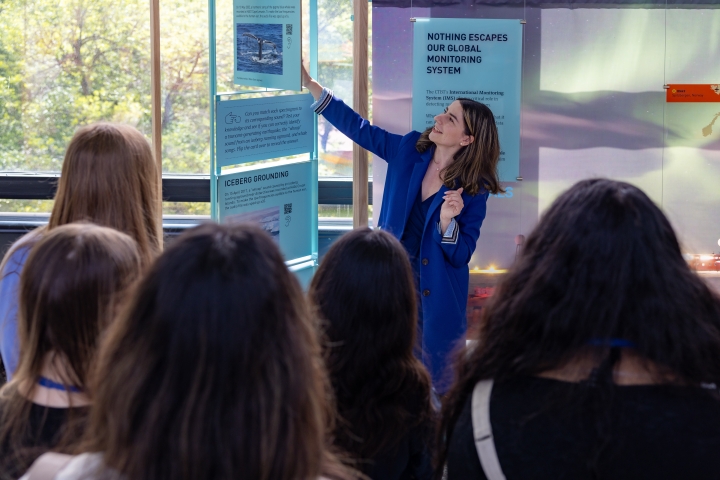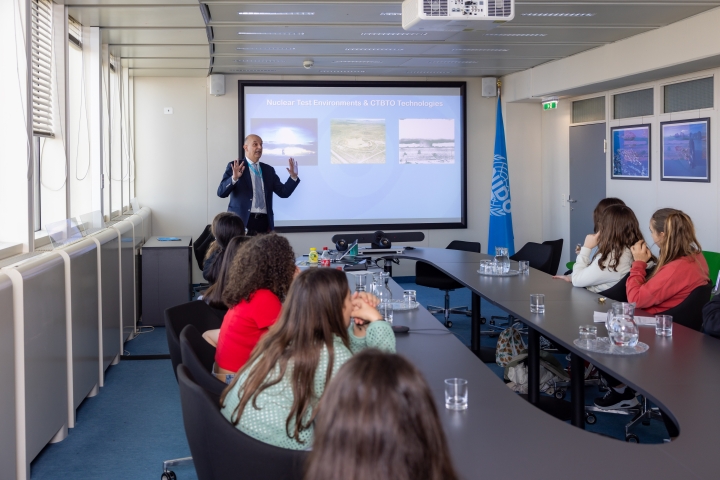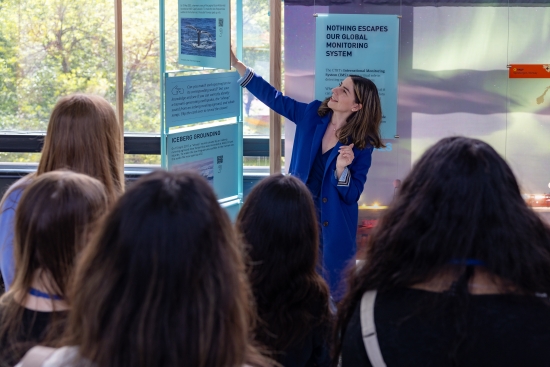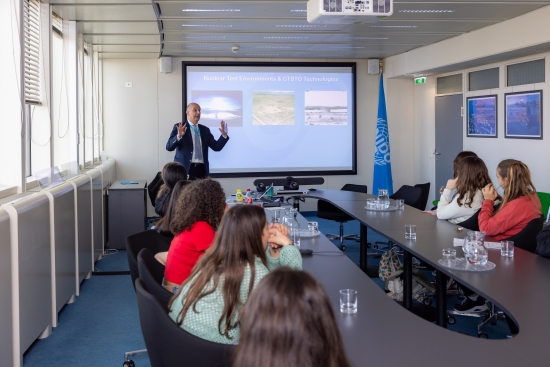Vienna's Daughters' Day empowers young minds in STEM
On 25 April 2024, Daughters' Day returned to Vienna, offering girls the chance to spend a day at some 200 institutions across the city.
The Vienna International Centre (VIC) welcomed 240 young visitors aged 11 to 16 to gain firsthand insights into various professions in international organizations, particularly those focusing on science, technology, engineering, and mathematics (STEM). This year’s group marked a significant increase from previous years, with 160 participants in 2022 and 110 attendees in 2021 visiting the VIC on Daughters’ Day.
Throughout the day, participants explored topics such as nuclear test detection, aviation, digital innovation, artificial intelligence, and climate change, among others. Participating organizations included the Comprehensive Nuclear-Test-Ban Treaty Organization (CTBTO), along with the International Atomic Energy Agency (IAEA), United Nations Industrial Development Organization (UNIDO), United Nations Office for Outer Space Affairs (UNOOSA), and the United Nations Office on Drugs and Crime (UNODC).
During the event's opening session, CTBTO’s Chief of Cabinet, Emma Webb, warmly welcomed the attendees and gave a brief overview of CTBTO presentations that would be offered throughout the day and the goal of the sessions.
We hope these sessions give you an insight into our work where science and diplomacy meet. We hope that you are inspired to study the science that underpins our work and perhaps join our mission someday and work with us here in Vienna.
Daughters’ Day attendees visit CTBTO Operations Centre
Participants learn about multilateralism by playing role of ambassadors from different countries
CTBTO sessions included a workshop at the Operations Centre, where analysts from the International Data Centre (IDC) Division examine data from the International Monitoring System (IMS) to detect nuclear test explosions. This system can also identify earthquakes, tsunamis, and volcanic eruptions, and the data gathered by the system can contribute to climate change studies and other scientific research.
Staff from CTBTO’s Policy Making Organ Secretariat Support Section (PMOS) held a session on multilateralism that allowed the girls to simulate meetings and play the role of ambassador from States Signatories.
Another session involved a tour of CTBTO’s new interactive exhibit where girls could jump on a panel to make seismic waves like the kind detected by the IMS. They could also feel a replica of the world’s vibrations at one of the exhibit stations, gaining an understanding of how data flows into the IDC. Additionally, the participants learned about On-site Inspections (OSI), the final verification measure to assess whether a nuclear test has taken place.
There was a lot of knowledge that I didn’t know. I am interested in marine biology, and I never knew that a new pygmy whale population was identified for the first time by one of the monitoring stations of the IMS. It surprises me how monitoring stations that were set up to detect nuclear tests can also help discover new whale populations. This has inspired me to study marine biology even more.

Engaging in interactive learning session about discovery of new pygmy whale population at CTBTO’s new exhibit

International Monitoring System (IMS) hydroacoustic expert explaining how CTBTO technologies are used to detect nuclear testing
3 May 2024


